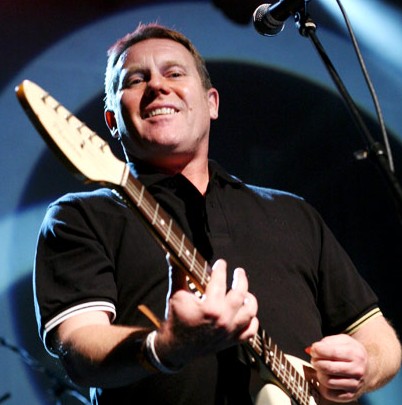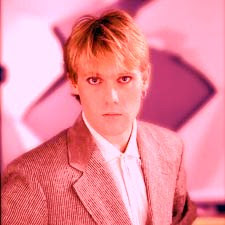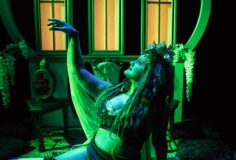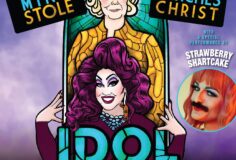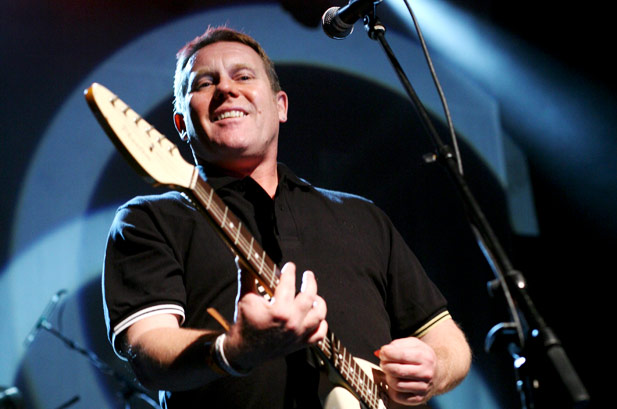
Dave Wakeling from the powerhouse 80s British group’s English Beat and General Public has gigs in Seattle and Tacoma this week.
Dave Wakeling had hopes of becoming a chef and saucier but ended up in the music business instead. He describes music as being a probable addiction but definitely an attachment. Dave is continuing his career with his first crowd funded album and taking it all on the road once again. With hits like “Save It For Later” and “Mirror In The Bathroom” under his belt we really can’t wait to see what’s next. He is performing tonight and Thursday (August 26th and 28th) at the Triple Door in Seattle and Wednesday (August 27th) in Tacoma at Jazz Bones. Don’t miss out!
ED: How different was it to take a risk on a publicly funded album?
DW: It has been really interesting. We put several demos and blueprints of the songs up on the site. Anyone who donates even the minimum can join in on the conversation and comment. I have really enjoyed that part. There have been an array of different styles of songs and they have gone down really well. People seem to have enjoyed the lyrics. It is just so new to have it so open. You don’t often know that someone has a new album coming out much less get to comment or listen to bits and pieces. It is an interesting project because I have to try to make a record to satisfy people who bought my first album 30 something years ago and at the same time have new material for someone just walking by that has never bought one of the previous albums. That’s an interesting challenge as an artist.
ED: Many might wonder why a boy from Birmingham, England would join a ska band.
DW: It made sense in Birmingham at the time. Whether they liked it or not people were much more integrated culturally and racially because of the huge industrialization of the area. We had all been shoved together quite a bit because of the factories. Then each generation just got more used to having mates of different hues. We didn’t really notice we were lucky in that way until we went to London and the crowds were all making comments about it. It turned out that it was timely though so we didn’t get our heads cracked in. It ended up being good fun musically. I think we helped break down a few barriers.
ED: What do you think of Gwen Stefani naming you as one of her musical influences?
DW: Well it is an honor. She dealt with super-stardom in a very grand style. She did it with some aplomb. She kept herself socially relevant and didn’t allow herself to become a caricature of herself or an object of paparazzi pity. She is just a class act. I never had to deal with that immense super-stardom or I might have just gone over the top, who knows. I think if someone that has done very well and says that you influenced them in a good way that you have to take that as a victory.
ED: How did it feel being signed to the legendary label, IRS Records?
DW: It was very exciting at the time. Miles Copeland was a dreadfully naughty chap but also a clever fellow, managed to collect some of the brightest stars from American college radio. They were bursting with enthusiasm and context for this new college radio format. It suited Miles very well because you didn’t have to pay to get your songs on the radio. It was very different from the top 40 sort of slush fund payola sort of thing. You could get a lot of plays on college radio and you would just end up maybe performing a concert at the college or something. The Police would be playing and we would open for them or The Go-Go’s. It worked really well for a few years but then as college radio became the new top 40 format things got a bit more complicated. More and more money kept getting involved. In its heyday we were lucky enough to be a part of it all. It was all very exciting. You would bump into Michael Stipe in the corridor. It was quite interesting seeing different artist and how they coped with things. It wasn’t quite Motown but it was interesting on the label. A lot of long term fans would tell us that they bought our first record because it was on IRS and they bought everything else on that label.
ED: When you were The Beat, did you ever think you would take a break and actually form two new and very successful bands? (General Public and Fine Young Cannibals)
DW: Some people in The Beat wanted two years off. They just wanted a break and some of us didn’t. So General Public took off then a few years later after the others had their break, Fine Young Cannibals came and took the world by storm.
ED: Isn’t it remarkable that you formed two such iconic bands from just the one band?
DW: I think it is remarkable too, particularly since I got to be involved in two of them. I am the sort of person that would lose the address on the way to the rehearsal. Then when I was on the phone trying to find out where to go I would walk off and leave my guitar. The fact that I got to even be in one group is stunning to me. The fact that by accident I did it twice is almost surreal.
ED: Who has performed your favorite cover of one of your songs?
DW: Pete Townsend and Eddie Vedder have covered “Save It For Later” a few times. Right at the time, Elvis Costello added a live version of “Stand Down Margaret” into his set. She won the election anyway, but we tried. I think that probably means the most because having someone you admired kind of maybe hero worshiped pick one of your songs to sing at a particular moment in time is just amazing. It doesn’t really get better than that.
ED: Do you think a lot of people misinterpret the meaning behind “Mirror In The Bathroom”?
DW: Well, yes I think so. Some songs become strangely prophetic. Honestly, it has nothing to do with cocaine. I don’t think anybody had seen any to be honest. People were practicing with amphetamines at the time but nobody had seen any cocaine. By the time we got to New York that was how people gave you their business cards, with a snort of cocaine. It was really more to do with self-obsession. When we arrived in America in the early eighties and people sat us down and explained some of the cocaine madness, it was remarkable that the song fit sort of behavior as well.
ED: Are there any new bands or musicians that have caught your ear lately?
DW: I do like Foster the People this last year or so. They have some great sounding pop records and some touchy little subliminal messages going on. I think that part is pretty revolutionary. There is a new band The Interrupters on the ska front. They sport white shirts, black ties explosive attitudes and very bisexual. They are jumping all around with great vocals. I just went to their record release party and I definitely recommend them.
ED: Are you playing any of your new music while you are here in the Pacific Northwest?
DW: Yes definitely, we are playing two or three of the new songs during the show. I don’t right a set list so sometimes it is Hobson’s choice. If I get stuck, I have to turn around and ask the piano player. Sometimes he is right on and rattles of four or five songs we haven’t played. Other times, I am pretty sure that he hasn’t paid any more attention than I have. When that happens he tends to act like he is having a problem with his ear plugs and he hasn’t heard me correctly. That means he is desperately buying time and hoping that the names of one or two songs pop in to his head.
(Editor’s Note: Major apologies for the blunder committed by me in regards the headline and photo caption erroneously indicating Mr. Wakeling was IN the band Fine Young Cannibals. This was a demented error on my part. I will be turning in my 80s Brit Pop Trivia Badge at the next Elder Gay meeting. The error has been corrected.
-M. Strangeways)


